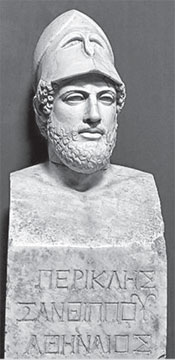Tracing the roots of freedom
 Freedom is the coin of the realm in the
kingdom of human worth and dignity, and the coin has two sides. On one
side are inscribed the rights and privileges of free men. On the other
side are the responsibilities. Unless both sides are genuine and deeply
cut, the coin is counterfeit. Freedom is the coin of the realm in the
kingdom of human worth and dignity, and the coin has two sides. On one
side are inscribed the rights and privileges of free men. On the other
side are the responsibilities. Unless both sides are genuine and deeply
cut, the coin is counterfeit.
- P.E. Kay
All human beings and even animals love freedom. When it comes to
humans, they expect freedom of movement, freedom of speech, freedom of
the press and freedom of living without anybody's control. All these are
ideals we have inherited from the Greeks who lived in the fifth and
sixth centuries before the birth of Jesus Christ. Most of us do not know
the real meaning of freedom as existed in the city state of Athens in
Greece.
We can boast of great civilisations in Egypt, Babylon, Mohenjo-Daro
and Harappa, but the people who lived during that time did not enjoy
freedom. They were dominated by emperors, kings or dictators who
demanded absolute obedience from the people. When the people have no
freedom to criticise their government or rulers, civilisation is
incomplete. It took a long time for the people to understand this basic
truth. In fact, they had to wait till the evolution of Athenian
democracy to enjoy freedom as it is understood today.
|

Pericles, the great Athenian
statesman |
For the first time in human history, Athenians believed that people
should never be obedient to a ruler except during a war. Pericles, the
great Athenian statesman said, “We are a free government, but we obey
the laws, more especially those which protect the oppressed, and the
unwritten laws which, if broken, bring shame.”
Absolute obedience
Athenians had no emperor or dictator who demanded absolute obedience
from them. However, they made laws and obeyed them to the letter. What
is more, they respected the unwritten laws. Some people who live in the
Digital Age have no respect for the law. They have no respect for
unwritten laws and they are quite ignorant of them. In contrast,
Athenians respected many unwritten laws such as helping the poor and
being kind to them. They spoke the truth and did not get involved in
dubious transactions.
People should be kind to others because it is a prerequisite for
living in a society. Only if you are living in an uninhabited island or
a desert, you can afford to be unkind to others. In other words, we have
no freedom to do what we want. Even the Athenians did not enjoy
unbridled freedom. According to them, freedom means obeying the laws of
the state and unwritten laws. The creed of the first free state in the
world was liberty for all men who could control themselves and take
responsibility for protecting the state.
In the Athenian state where freedom had its roots, people never
expected anything from the state. They only expected the state to pass
laws and protect the people against invaders. However, the very concept
of freedom and democracy has undergone a sea change in modern times.
Today, people expect everything from the state. They want the state to
educate their children, provide health facilities, find jobs for their
children, provide facilities for the aged and protect the country from
invaders. In the process, freedom has lost its original meaning.
Democracy
Even in Athens where democracy and freedom originated, we no longer
find them. Today it has lost its democratic values and people are
clamouring for freedom and democracy. This is the irony of fate as
reflected in human history. This brings us to the inevitable conclusion
that nothing remains static forever. Everything is in a state of flux.
History repeats itself.
The fight for freedom appears to be an endless battle. Its victories
are never final and conclusive. Even its defeats are never permanent.
Recent unfortunate incidents in Sri Lanka's history shows that each
generation has to defend its heritage, for each seeming conquest gives
rise to new forces that will attempt to substitute fresh means of
oppression for the old. There can be no permanent peace in a world where
life goes on. Every battle our forefathers fought need to be repeated by
their children and grandchildren if they wish to preserve and extend the
freedom.
Sri Lanka too fought back and regained freedom on many occasions in
its chequered history. Before the advent of South Indian invaders, Sri
Lanka was ruled by kings who demanded absolute obedience from the
people. They did not enjoy the freedom of expression or the freedom to
criticise the rulers. However, most of the kings were benevolent rulers.
Despite differences, people rallied round the king to defend the
sovereignty of the state during a war.
In recent times, we had to rally round President Mahinda Rajapaksa to
defeat a marauding terrorist who tried to divide the country and carve
out a separate state. The government and the people won the battle and
the freedom they had lost. However, the hard-won freedom has to be
preserved through constant vigilance. We have to learn a lesson from
Athens where freedom and democracy originated and perished. |

